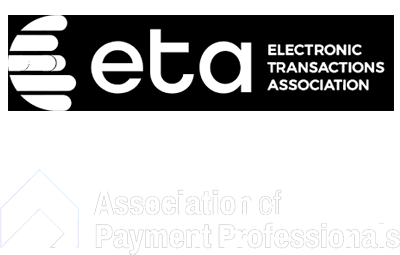02 Oct

Being labeled as a high-risk business has significant implications for credit card processing, especially for collection agencies. It is crucial for collection agencies to understand the criteria for high-risk classification and the reasons behind why they are considered high-risk in order to navigate the challenges effectively. In this article, we will explore the impact of the high-risk label on credit card processing, strategies for navigating the label, case studies of high-risk collection agencies, and future trends in high-risk credit card processing.
Defining High-Risk Businesses
Before we delve into the specifics of credit card processing for high-risk collection agencies, it is essential to understand what high-risk businesses are. High-risk businesses are those that are at a greater risk of chargebacks, fraud, or legal complications. Industries such as pharmaceuticals, adult entertainment, and debt collection often fall into this category.
High-risk businesses face unique challenges that require specialized payment processing solutions. These challenges can range from increased chargeback rates to regulatory hurdles. To effectively navigate these obstacles, it is crucial to have a deep understanding of the criteria that contribute to the classification of businesses as high-risk.
Criteria for High-Risk Classification
Several factors contribute to the classification of businesses as high-risk. These may include the nature of the industry, the potential for chargebacks, the risk of fraudulent transactions, and the regulatory environment. Collection agencies, for instance, are classified as high-risk due to the nature of their business, which involves collecting debts from individuals who may be in financial distress.
When assessing the risk level of a business, payment processors consider various industry-specific factors. For example, in the pharmaceutical industry, there is a higher likelihood of chargebacks due to product dissatisfaction or potential health risks. Similarly, adult entertainment businesses may face increased chargebacks resulting from customer disputes over the quality of services provided.
Furthermore, the risk of fraudulent transactions is a significant concern for high-risk businesses. Industries like debt collection are often targeted by fraudsters who attempt to exploit vulnerabilities in payment systems. Payment processors must implement robust fraud prevention measures to protect both the business and the customers.
The regulatory environment also plays a crucial role in determining a business’s risk level. Certain industries, such as debt collection, are subject to strict regulations to ensure fair practices and protect consumers. Compliance with these regulations can be complex and time-consuming, requiring businesses to invest in specialized resources to navigate the legal landscape.
Why Collection Agencies are Considered High-Risk
Collection agencies face unique challenges that make them high-risk in the eyes of credit card processors. One of the main reasons is the potential for chargebacks. When individuals dispute a debt or claim that they did not authorize a payment, chargebacks can occur. Collection agencies must be prepared to handle these disputes effectively to maintain their credibility and financial stability.
In addition, collection agencies often encounter legal complexities in their line of work. This could involve navigating different state regulations, compliance with fair debt collection practices, and understanding consumer protection laws. These legal intricacies contribute to the high-risk classification.
Moreover, the sensitive nature of debt collection can lead to heightened emotions and increased customer dissatisfaction. This, in turn, can result in a higher likelihood of chargebacks as disgruntled customers seek refunds or dispute the validity of the debt. Collection agencies must adopt strategies to minimize these chargebacks and maintain positive customer relationships.
Furthermore, the debt collection industry operates in a highly regulated environment. Collection agencies must comply with federal and state laws, including the Fair Debt Collection Practices Act (FDCPA), which sets guidelines for ethical debt collection practices. Non-compliance with these regulations can lead to legal penalties and damage to a collection agency’s reputation.
Given these challenges, collection agencies must partner with payment processors that specialize in high-risk businesses. These processors understand the unique needs of the industry and can provide tailored solutions to mitigate risks and ensure smooth payment processing.
The Impact of High-Risk Label on Credit Card Processing
When collection agencies are labeled as high-risk, they face various challenges in their credit card processing capabilities. These challenges can have a significant impact on their operations and financial viability.
Collection agencies play a crucial role in the financial ecosystem, assisting businesses and individuals in recovering outstanding debts. However, due to the nature of their business, they often find themselves categorized as high-risk by credit card processors.
The high-risk label carries a range of consequences that collection agencies must navigate to ensure smooth credit card processing. Let’s explore some of the key impacts:
Higher Processing Fees
One of the most prominent impacts of the high-risk label is the higher processing fees imposed by credit card processors. This increase in fees is a reflection of the perceived risk associated with processing payments for high-risk businesses.
Collection agencies must carefully evaluate the fees associated with their credit card processing services to ensure they can maintain profitability. These higher fees can eat into their revenue, making it essential for them to strike a balance between providing quality services and managing their financial resources effectively. Using a platform like www.PayBlox.com will let processors compete for your business. PayBlox is a free platform for business owners and they will match your business to credit card processors who have experience working with debt collectors.
Increased Chargeback Rates
Another impact of the high-risk label is the increased likelihood of chargebacks. Collection agencies are more susceptible to chargeback disputes due to the nature of their business.
Chargebacks occur when customers dispute a charge on their credit card statement, leading to a reversal of the transaction. For collection agencies, this not only results in financial losses but also has implications on their chargeback ratio. Exceeding certain thresholds can lead to further restrictions and penalties from credit card processors.
Therefore, collection agencies must implement robust measures to minimize chargebacks, such as enhancing customer communication, ensuring accurate billing information, and resolving disputes promptly.
Strict Contract Terms
High-risk businesses, including collection agencies, often face more stringent contract terms from credit card processors. These terms may include higher reserves, stricter monitoring, or limitations on transaction volumes.
Adhering to these contract terms is crucial for collection agencies to maintain their credit card processing capabilities and relationships with payment processors. Failure to comply with these terms can result in penalties, account freezes, or even termination of services, severely impacting their ability to collect payments efficiently.
Despite these challenges, collection agencies continue to play a vital role in the economy, assisting businesses in recovering debts and maintaining financial stability. It is essential for them to adapt and implement strategies that mitigate the impact of the high-risk label on their credit card processing operations.
Navigating the High-Risk Label for Collection Agencies
Despite the challenges presented by the high-risk label, collection agencies can take steps to navigate this classification effectively and minimize its impact on their credit card processing capabilities.
Collection agencies operate in an industry that is often deemed high-risk due to the nature of their business. The debt collection process involves contacting individuals who may be facing financial difficulties, which can sometimes lead to disputes and chargebacks. As a result, collection agencies face higher scrutiny from credit card processors and financial institutions.
However, collection agencies should not be discouraged by the high-risk label. With the right strategies in place, they can overcome these challenges and continue to operate efficiently.
Seeking Out High-Risk Merchant Account Providers
One strategy for collection agencies is to partner with high-risk merchant account providers. These providers specialize in working with high-risk businesses and have expertise in managing the unique challenges associated with credit card processing. By partnering with such providers, collection agencies can access specialized services tailored to their needs.
High-risk merchant account providers understand the intricacies of the collection industry and can offer customized solutions to address the specific challenges faced by collection agencies. They have robust risk management systems in place to help mitigate potential issues and ensure smooth credit card processing operations.
In addition, these providers have established relationships with acquiring banks that are more willing to work with high-risk businesses. This can significantly improve a collection agency’s chances of obtaining a merchant account and maintaining a stable payment processing system.
Implementing Risk Mitigation Strategies
Collection agencies can also implement risk mitigation strategies to minimize the impact of the high-risk label. These strategies may include thorough documentation and verification processes, robust customer communication protocols, and proactive dispute resolution practices.
By implementing stringent documentation and verification processes, collection agencies can ensure that they have accurate and up-to-date information about each debtor. This helps reduce the risk of processing payments from individuals who may dispute the charges later on.
Effective customer communication protocols are also crucial for collection agencies. Clear and transparent communication can help build trust with debtors and reduce the likelihood of disputes. Collection agencies should provide detailed information about the debt, payment options, and any potential consequences of non-payment.
Proactive dispute resolution practices can further minimize the impact of chargebacks on credit card processing operations. Collection agencies should have a dedicated team to handle disputes promptly and resolve them in a fair and efficient manner. By addressing potential issues before they escalate, collection agencies can maintain positive relationships with both debtors and payment processors.
In conclusion, while the high-risk label may pose challenges for collection agencies, there are strategies they xcan employ to navigate this classification effectively. By partnering with high-risk merchant account providers and implementing risk mitigation strategies, collection agencies can continue to operate efficiently and minimize the impact on their credit card processing capabilities.
Future Trends in High-Risk Credit Card Processing
The landscape of high-risk credit card processing is subject to ongoing changes and developments. Staying updated on future trends can help collection agencies adapt their strategies and ensure the long-term viability of their credit card processing capabilities.
Technological Advancements and High-Risk Processing
Advancements in payment technology, such as tokenization and artificial intelligence, have the potential to revolutionize high-risk credit card processing. These technological advancements can enhance security measures, reduce fraud risks, and streamline the payment acceptance process for collection agencies. Keeping pace with these developments will be essential for collection agencies in maximizing their credit card processing capabilities.
Regulatory Changes Impacting High-Risk Businesses
Regulatory changes can significantly impact credit card processing for high-risk businesses, including collection agencies. Staying informed about regulatory updates, compliance requirements, and industry guidelines is essential for collection agencies to adapt their credit card processing strategies accordingly. Failure to comply with changing regulations can result in significant penalties and disruptions to credit card processing capabilities.
In conclusion, being labeled as high-risk can have a profound impact on credit card processing for collection agencies. The higher processing fees, increased chargeback rates, and strict contract terms associated with the high-risk label present significant challenges. However, by understanding the criteria for high-risk classification, implementing risk mitigation strategies, and seeking out specialized merchant account providers, collection agencies can navigate these challenges effectively. Case studies provide valuable insights into success stories and lessons learned from failed processing experiences. Furthermore, staying aware of future trends, including technological advancements and regulatory changes, is crucial for collection agencies to adapt their credit card processing strategies and ensure long-term viability in a dynamic industry.






